Following on from last week's engaging session on "Demonstrators & Investment," this afternoon, I was excited to participate in the crucial Sheffield City Goals Governance Workshop, at The Circle. Facilitated by the insightful team of James Lock, Tchiyiwe Chihana, and Richard Kirtley, this workshop took a deep dive into the complexities of governance – specifically, "where does it get messy?" – as we continue to design how investment will best support Sheffield's shared future.
The energy from the previous week was clearly carried forward, with a strong focus on ensuring that the structures we build are fit for purpose, inclusive, and truly empowering for all Sheffielders. The insights from this session will be another vital "gift" to the designers' group, shaping the blueprint due in June.
Workshop Overview: Grappling with Governance Tensions
The session was thoughtfully structured to build on previous conversations and to unearth the core challenges and opportunities in governing investment for the City Goals.
Setting the Stage: "Where Does It Get Messy?" (James Lock)
James opened by framing the day’s core task: to explore the inherent tensions in decision-making and governance. He recapped that while the previous workshop focused on what might be funded (demonstrators) and how (investment principles), today was about the who and how of decision-making processes. He presented a slide highlighting several critical tensions as a starting point for discussion:Local voice vs. institutional accountability
Urgency vs. time for deep participation and design
Expertise vs. lived experience
Present-day needs vs. future generations
Rules vs. values
Stability vs. adaptability
Simplicity vs. fairness
The prompt for the groups was to consider these, identify which resonated most, and begin to imagine solutions.
Building on "Gifted" Tensions (Richard Kirtley)
Richard then skilfully connected this to the "gifted" tensions from our last workshop. This provided a rich set of challenges already identified, including:Information informing decisions vs. verification
Transparency & simplicity vs. safety & conflict resolution
Fixed processes vs. adaptability/evolution
Ongoing support vs. fixed decisions or rejection
Established orgs vs. newer organisations
Intended vs. unintended consequences
Interests of investors vs. people and communities
Representation vs. participation
Preferencing groups and places experiencing structural oppression
The groups were tasked to use these as a springboard, considering how the day's conversations could help resolve or navigate these complex areas.
Group Discussions – Deep Dive into Governance Realities:
The heart of the workshop involved rich group discussions. Snippets from the video revealed several critical themes emerging:Financial Voice Dominance & Power Dynamics: A significant concern was how "louder voices," often those comfortable with financial language and existing power structures, can overshadow others. The challenge is to structure processes that manage financial risk responsibly while actively dismantling, rather than perpetuating, existing power imbalances.
Investor Motivations & Value Shifts: The discussion explored the differing motivations of investors, distinguishing between purely financial returns and philanthropic/social value goals. There's a need for a "value shift" for all parties, including investors, to better recognise and integrate social and ecological value into investment decisions. This touched on how philanthropic organisations were initially set up and whether their current operations always align with those founding principles.
Governance Processes & Investor Expectations: A pragmatic tension was identified between traditional investor expectations (e.g., demanding track records, familiar governance structures with clear named individuals/CVs) and the desire for more innovative, democratic, and community-led models. This led to discussions about the need to either "take investors on a journey" to understand and trust new models or accept that such models might narrow the potential investor pool. The importance of a "place-based" track record, not just individual ones, was also noted.
Match Funding & Social Value Leverage: The power of match funding was highlighted as a potential "game-changer," testing the commitment and capacity of organisations. Similarly, embedding social value requirements (e.g., in construction tenders where developers must deliver social value elements) was seen as a way to "draw down" broader benefits.
Blended Investment & Decision-Making: The question arose whether decision-making becomes more community-centric if commercial investors have a smaller stake (e.g., 10-20%) in a blended model, potentially giving more weight to social and community outcomes.
The Need for a Broader Cultural Shift: Beyond specific democratic mechanisms, a deeper cultural shift within the city and its institutions towards greater trust, genuine collaboration, and valuing diverse forms of contribution was identified as crucial.
Wrap-up & Next Steps (James Lock)
James concluded by thanking everyone for their rich contributions, confirming that this invaluable input would be fed directly into the "designers' group" working on the investment infrastructure. He reiterated that a blueprint is anticipated in June, and participants would be kept informed of progress.
Key Themes & Insights from the Governance Workshop
Synthesising the day's discussions, several overarching themes emerged, critical for Project Ignite and Love Sheffield:
The Challenge of Investor Alignment: A central theme was navigating the tension between traditional investor expectations (focused on established track records, conventional governance) and the aspiration for innovative, inclusive, community-led investment models. The concept of "taking investors on a journey" to build understanding and trust in new approaches is key.
Power, Voice, and Financial Influence: The workshop repeatedly surfaced concerns about whose voices are truly heard and valued in funding decisions. There's a critical need to move beyond systems where financial literacy or existing positions of power dictate influence, towards structures that genuinely amplify diverse community perspectives.
Valuing and Leveraging Social & Ecological Impact: Mechanisms such as match funding and embedding explicit social and ecological value requirements into investment criteria were seen as powerful tools. The challenge lies in making these integral to the system, not just add-ons.
Cultural Transformation as a Prerequisite for Systemic Change: Participants recognised that new governance models alone are insufficient. A broader cultural shift within Sheffield – fostering trust, promoting genuine collaboration, and valuing non-monetized contributions – is essential for any new system to thrive.
Bridging Traditional and Innovative Governance: How can nascent, democratic governance models gain credibility and traction with more traditional funding sources? The role of intermediary structures, perhaps like a "demonstrator accelerator/incubator" (as floated by Richard), could be vital in de-risking and showcasing new approaches.
The Human Element in Governance: The discussion around track records often defaulting to individuals with established CVs highlighted a need. While experience is valuable, governance models must also create pathways for new leaders and diverse forms of expertise (including lived experience) to be recognised and influential.
Key Takeaways for Sheffield's Future Investment
This workshop reinforces and adds nuance to our understanding of what’s needed:
Nuance in Investor Engagement: It’s not just about securing investment, but how and from whom, ensuring alignment with Sheffield’s core values and City Goals.
Systemic AND Project-Level Governance: We need governance that supports both the integrity and effectiveness of individual projects AND fosters a healthy, equitable, and resilient wider investment ecosystem.
The "How" is as Important as the "What": The process of decision-making – its transparency, inclusivity, and accountability – is as critical to success and legitimacy as the outcomes themselves.
Capacity Building for New Models: Both communities and potential investors may need support, education, and new tools to engage effectively with unfamiliar or innovative governance and investment approaches.
Iterative Design and Learning: The governance model itself should be adaptable, capable of learning and evolving as Sheffield implements and tests new ways of working.
Next Steps: The Journey Continues
The rich insights from this governance workshop will now be synthesised and directly inform the work of the designers' group. The aim remains to develop a robust and forward-thinking blueprint for Sheffield's investment infrastructure by June, with further opportunities for stakeholders to engage.
A Call to Action for Project Ignite & Love Sheffield
The discussions today resonate deeply with the ethos of Project Ignite and Love Sheffield. Here’s how we can contribute:
Champion Inclusive Governance Models: Actively advocate for and help pilot governance structures that are transparent, accessible, and genuinely representative of Sheffield’s diverse communities.
Facilitate Dialogue & Understanding: Use our platforms to help "translate" between grassroots community perspectives and more formal funding/governance language, fostering mutual understanding and trust.
Showcase the Value of Diverse Contributions: Continue to highlight and find ways to integrate the non-monetized "gifts" – skills, care, social capital – into the broader understanding of Sheffield's wealth and investment potential.
Support Capacity Building: Identify and support initiatives that equip both communities and potential investors with the skills and confidence to engage in new, collaborative funding and governance models.
Stay Engaged & Encourage Participation: Continue to be active participants in the Sheffield City Goals process and inspire others to lend their voices and experience to this vital city-shaping work.
This governance workshop was another significant step in Sheffield's journey. The commitment to getting this right is palpable, and by continuing to engage, challenge, and co-create, we can build an investment infrastructure that truly serves all of Sheffield.
Thank you, and please reach out to me if you’d like to be more involved in this journey - our purpose here is to help make it easier for everyone become more connected.
Kind regards,
Brian Mosley
Founder, Love Sheffield & Project Ignite
Author of "Uniting Hearts, Igniting Change"

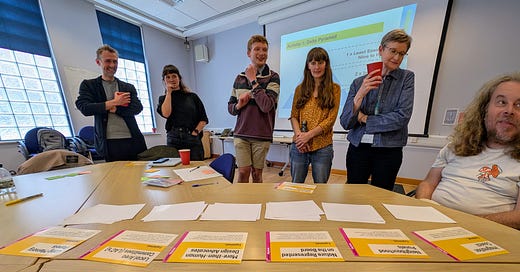


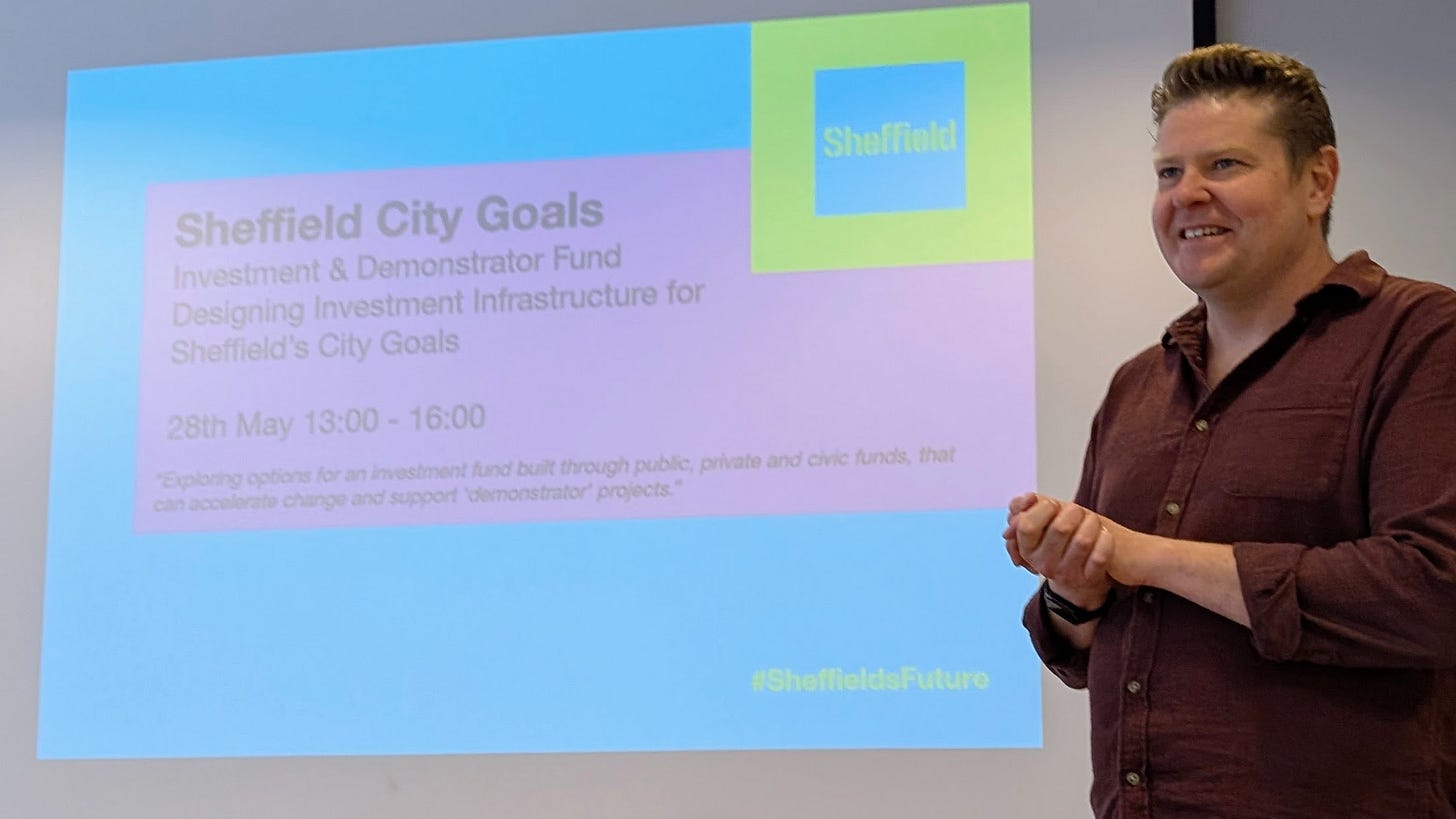

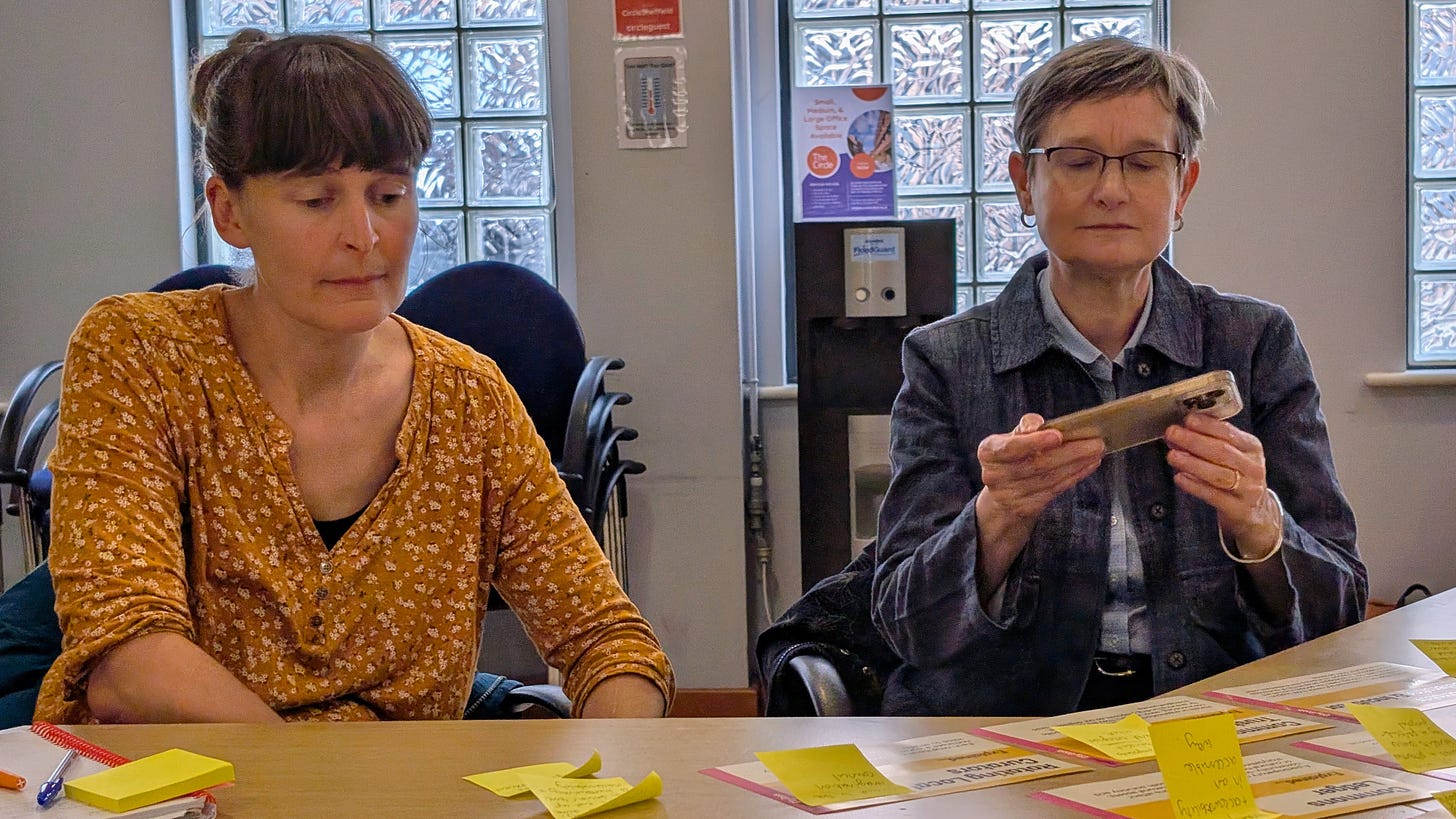
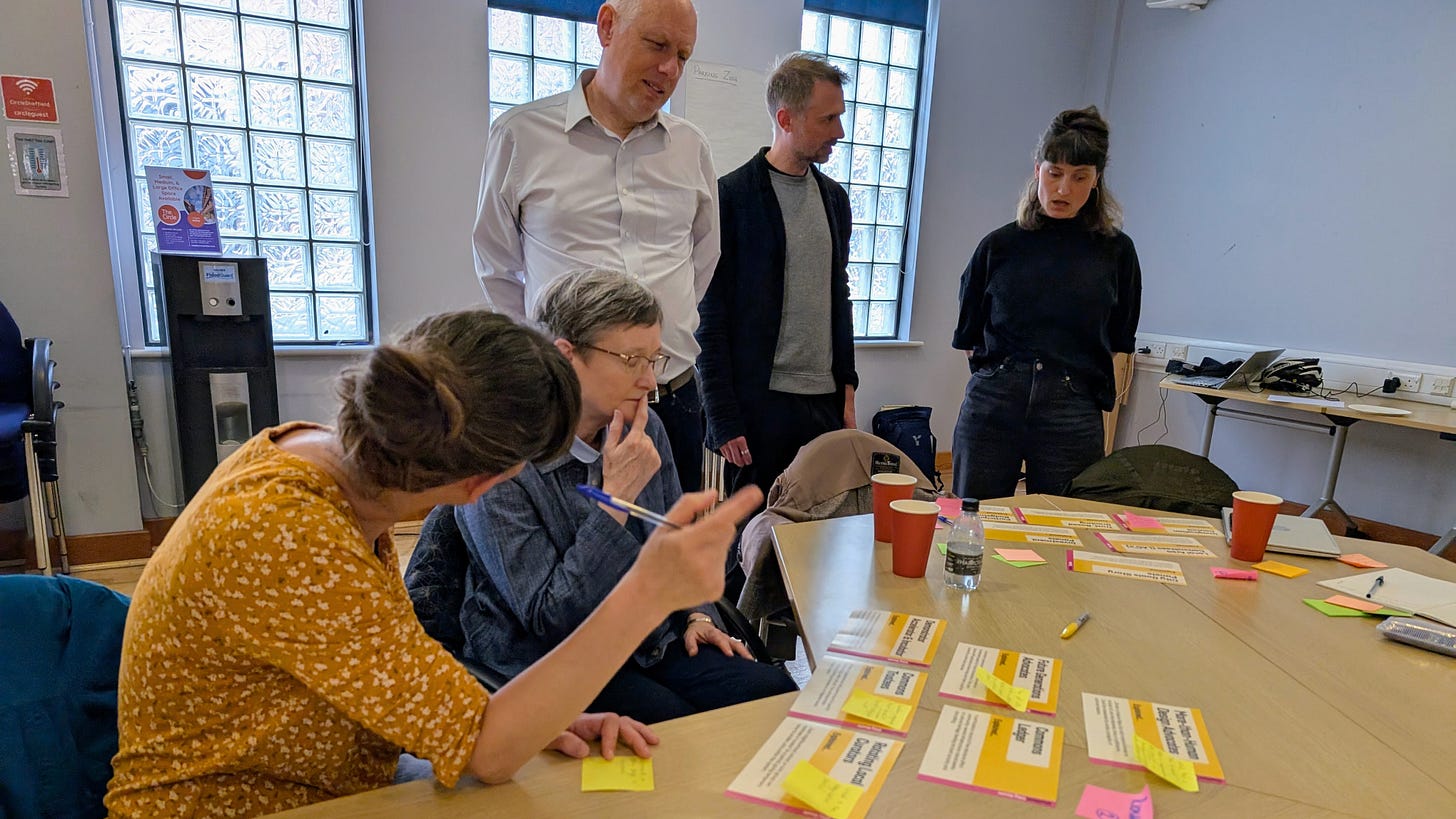
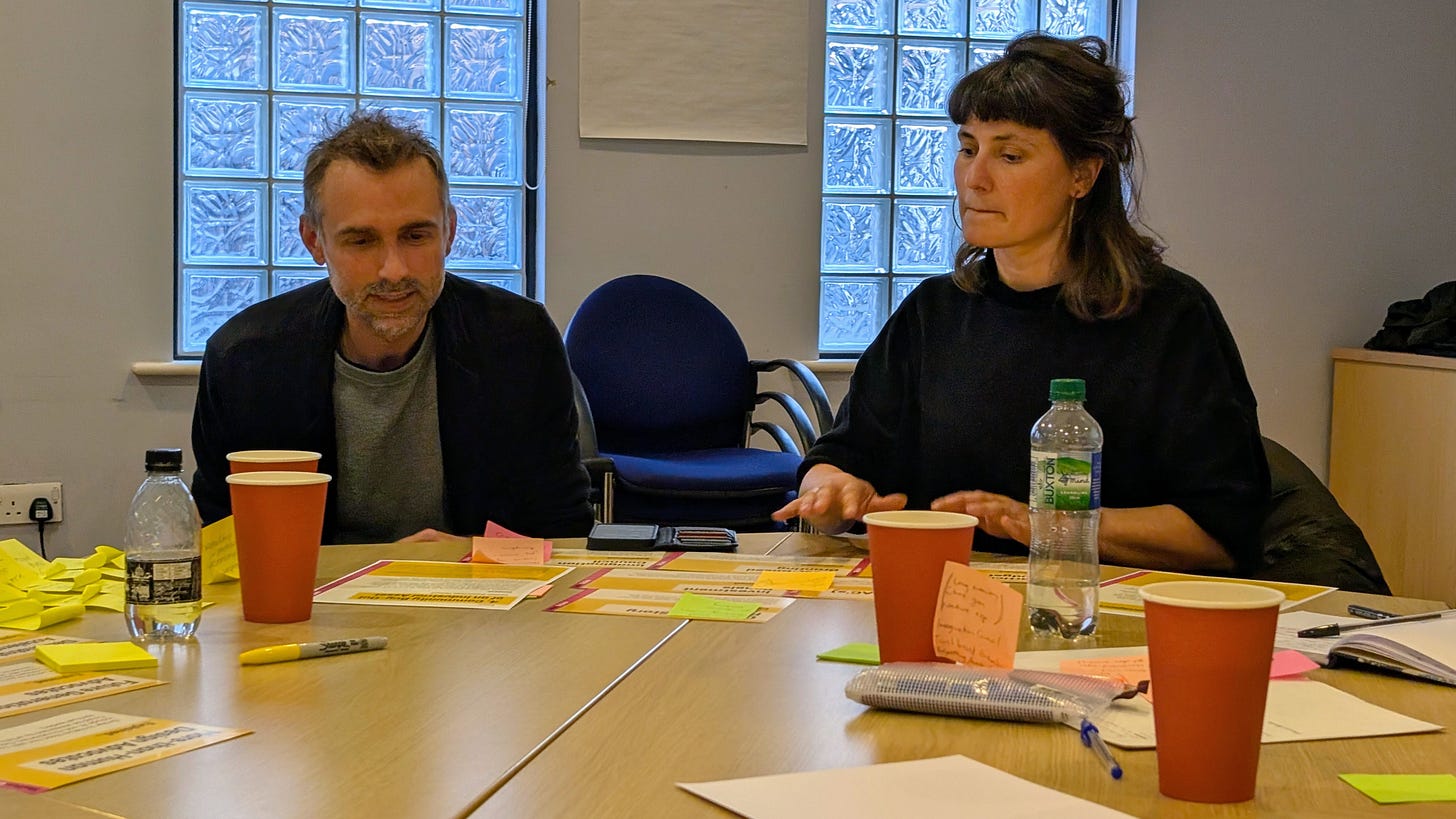
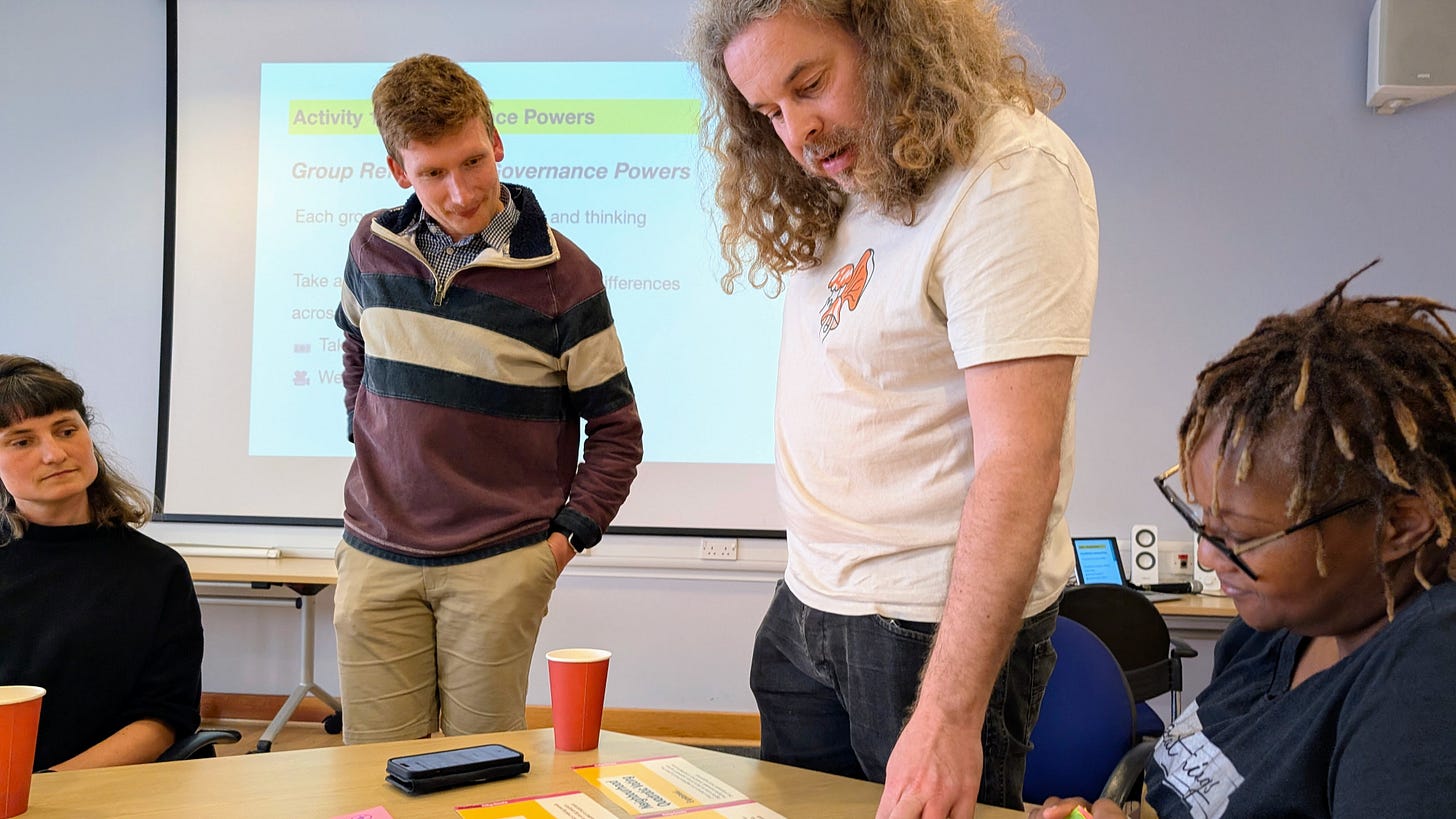
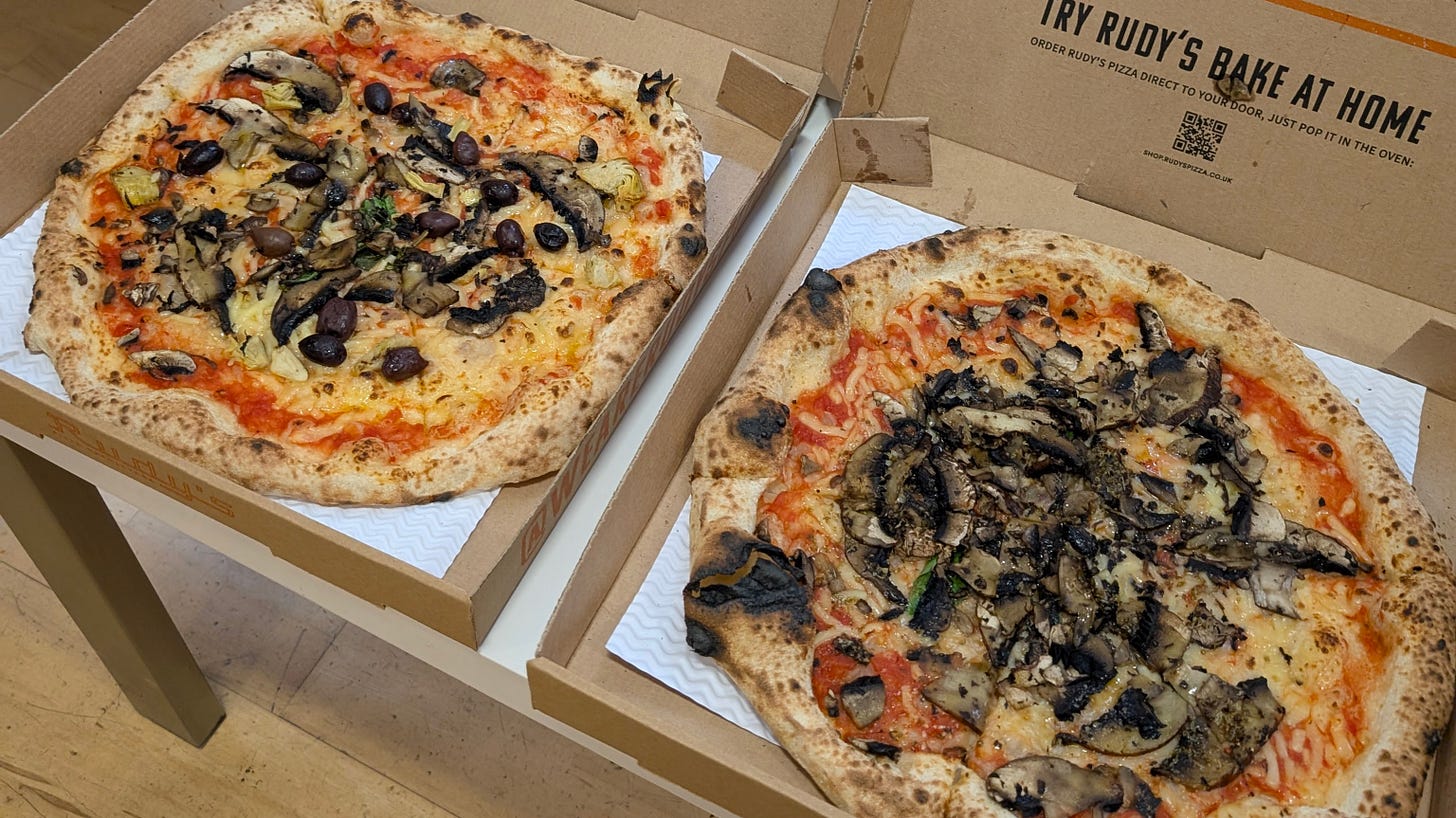
We spoke on the phone and hope you understand why I am focusing on getting our economic empowerment and decentralization right, as a second step from soulsearching. Break from the enemy system.